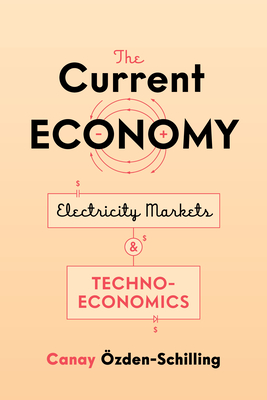Expedite your nonfiction book discovery process with Readara interviews, summaries and recommendations, Broaden your knowledge and gain insights from leading experts and scholars
In-depth, hour-long interviews with notable nonfiction authors, Gain new perspectives and ideas from the writer’s expertise and research, Valuable resource for readers and researchers
Optimize your book discovery process, Four-to eight-page summaries prepared by subject matter experts, Quickly review the book’s central messages and range of content
Books are handpicked covering a wide range of important categories and topics, Selected authors are subject experts, field professionals, or distinguished academics
Our editorial team includes books offering insights, unique views and researched-narratives in categories, Trade shows and book fairs, Book signings and in person author talks,Webinars and online events
Connect with editors and designers,Discover PR & marketing services providers, Source printers and related service providers

The Current Economy: Electricity Markets and Techno-Economics
Social Science > Anthropology - Cultural & Social
- Stanford University Press
- Paperback
- 9781503628212
- -
- -
- Social Science > Anthropology - Cultural & Social
- (Single Author) Asian American
- English
Readara.com
Book Description
Electricity is a quirky commodity: more often than not, it cannot be stored, easily transported, or imported from overseas. Before lighting up our homes, it changes hands through specialized electricity markets that rely on engineering expertise to trade competitively while respecting the physical requirements of the electric grid. The Current Economy is an ethnography of electricity markets in the United States that shows the heterogenous and technologically inflected nature of economic expertise today. Based on ethnographic fieldwork among market data analysts, electric grid engineers, and citizen activists, this book provides a deep dive into the convoluted economy of electricity and its reverberations throughout daily life.
Canay �zden-Schilling argues that many of the economic formations in everyday life come from work cultures rarely suspected of doing economic work: cultures of science, technology, and engineering that often do not have a claim to economic theory or practice, yet nonetheless dictate forms of economic activity. Contributing to economic anthropology, science and technology studies, energy studies, and the anthropology of expertise, this book is a map of the everyday infrastructures of economy and energy into which we are plugged as denizens of a technological world.
Author Bio
I work at the intersection of economic anthropology, science and technology studies, and the anthropology of infrastructures. Broadly, I am interested in the conjoined infrastructures of energy and capitalism, the dissemination of economic forms of life, and the role of scientists and engineers in market-building and maintenance.
My first book, The Current Economy: Electricity Markets and Techno-Economics (forthcoming in 2021 from Stanford University Press), is an ethnography of electricity markets in the United States. Electricity is a quirky commodity; more often than not, it cannot be stored, transported except through dedicated routes, or imported from overseas. In a growing number of regions across the globe, it changes hands through specialized electricity markets that rely on engineering expertise, so it can be traded competitively while respecting the physical requirements of the electric grid.
Based on fieldwork among market data analysts, electric grid engineers, and citizen activists, The Current Economy shows the heterogenous and technologically inflected nature of economic expertise today. I argue that many of the economic formations in everyday life come from work cultures rarely suspected of doing economic work: cultures of science, technology, and engineering that often do not have a claim to economic theory or practice, yet nonetheless dictate forms of economic activity.
My second research project develops my interest in the scientific and technological infrastructures of contemporary markets and capitalism—this time with a focus on the global supply chain logistics, as seen from a port city on the Eastern Mediterranean. I have anchored this project in Mersin, Turkey, which hosts an international container port that was privatized in 2007 and has since been managed by a Singaporean port operation firm.
In this project, I ask: How are supposedly global logistical ideals, like just-in-time delivery, translated into port operations in local contexts where economic and political pressures are more convoluted than the simple demand of efficiency? How do ports negotiate the Janus-faced expectations from them as facilitators of global trade and the host nation’s economic growth? What new meanings do the “public” and the “private” acquire in the daily operation of privatized public infrastructures?
I received my Ph.D. in 2016 from the History, Anthropology, and Science, Technology, and Society Program at the Massachusetts Institute of Technology. Prior to coming to NUS, I was a Mellon-Sawyer Postdoctoral Fellow in Anthropology at Johns Hopkins University. My articles have appeared in Cultural Anthropology, Economic Anthropology, Annals of Science, and Limn.
Research Interests
Markets and capitalism, electricity and energy, science and technology studies, infrastructures of modernity, North America, the Middle East.
Education
Ph.D, Massachusetts Institute of Technology; M.A, New York University; B.A, Bogazici University
Source: National University of Singapore
Videos
No Videos
Community reviews
No Community reviews

